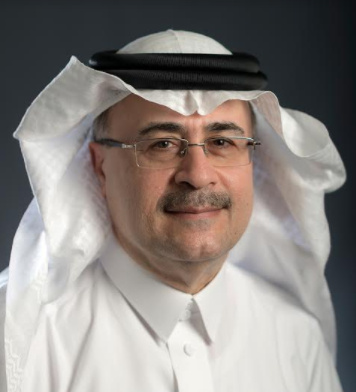Publisher: Maaal International Media Company
License: 465734
Aramco CEO: Oil demand over 100 mln bpd, no sign of collapse
Saudi Aramco President and CEO Amin Nasser said global oil demand continues to exceed 100 million barrels per day, with no indication of a downturn, underscoring the enduring importance of hydrocarbons despite ongoing energy transition efforts.
Speaking via video at the 2025 Asia Energy Conference — a forum bringing together energy experts, industry leaders and policymakers — Nasser said expectations around the pace of the energy transition had been overestimated and poorly executed in many parts of the world, especially in Asia.
“We were told it would be rapid, painless, and inevitably mean the collapse of conventional energy. Yet oil demand still exceeds 100 million barrels per day, with no sign of collapsing,” he said.
اقرأ المزيد
Nasser pointed to a growing realisation of technical, economic, political and social flaws in the mainstream energy transition narrative. “On one hand, this transition is extremely expensive — the cost of achieving net-zero emissions could reach $200 trillion. On the other hand, renewable sources, while important and growing, have not yet demonstrated sufficient reliability to shoulder existing burdens and risks,” he noted.
He emphasised that energy security and affordability are now emerging as core objectives of the energy transition, alongside sustainability. “Realism and pragmatism are replacing idealism,” he added.
“As the engine of global growth and the world’s largest energy-consuming region, Asia accounts for almost half of global demand. Without Asia’s needs and resources in the equation, the transition has no mass, no momentum, no chance! And Asia will need a lot more energy… from every source,” Nasser said.
He reiterated that wind, solar, and electric vehicles currently fall short of satisfying today’s demand, let alone tomorrow’s. “This is why oil and gas continue to be essential components of the global energy mix and will remain central to meeting rising demand and securing future energy stability,” he said, adding that reducing emissions from these critical sources must also be a top priority.
Nasser stressed that the long-term goal is not to abandon conventional energy, but to enhance it while scaling up new solutions at a realistic pace. “Each country must have a flexible, tailored energy strategy they can deliver. Based on where they are today… and what they can afford. While accepting that transition will not be smooth sailing or pain-free… especially in an increasingly volatile and uncertain world,” he said.
He warned against underestimating the strategic importance of crude oil and natural gas amid persistent threats to global energy security. “History also tells us that new energy sources don’t replace the old. They add to the mix,” he said.
Nasser concluded by calling for greater collaboration among governments, the energy sector, and innovators. “So, let’s ensure that Asia’s transition voice matches its economic voice. Let’s deliver a future that is secure and affordable as well as sustainable. And let’s move to a plan that’s grounded in reality. But where the sky’s the limit if we focus on prosperity and progress… for everyone.”








